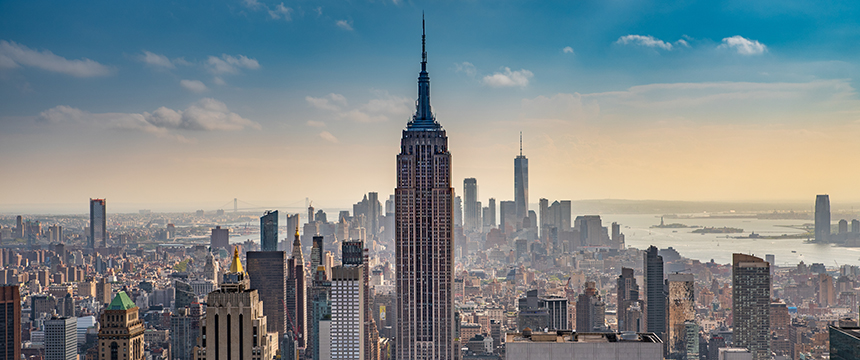A Mad Dog’s Promenade: New York City’s COVID-19 Vaccine Mandate for Employers

Week after week, this publication has been producing informative pieces on COVID-19 vaccine mandates in the workplace – see here, here, and here – and for good reason. Employers (and employees) have been grappling with a discordant national landscape of workplace vaccine mandates, including laws that require employers to implement mandatory vaccine policies, laws that prohibit employers from doing so, and the vast in-between where employees may choose to do so.
News hit a crescendo this past week when the U.S. Supreme Court issued decisions (i) blocking the Emergency Temporary Standard (ETS) issued by the Occupational Safety and Health Administration (OSHA), which would have required employers with 100 or more employees to ensure their workforce is fully vaccinated or require regular testing and masking, and (ii) sustaining the Centers for Medicare & Medicaid Services (CMS) mandate, which requires COVID-19 vaccinations for workers in most health care settings that receive Medicare or Medicaid reimbursement.
While we continue to digest the fallout of these decisions, the nation’s largest city has been forging ahead with its own requirements.
To that end, employers here in New York City (NYC) recently and quite suddenly found themselves subject to a local vaccine mandate. On December 6, 2021, lame duck Mayor Bill de Blasio (reflecting NYC’s “walk tall or don’t walk at all” attitude) announced that NYC would be the first major U.S. city to require private sector workers to be vaccinated against COVID-19. The mandate became effective on December 27, 2021, just several days before de Blasio was to turn the mayoral reigns over to his successor, Eric Adams. Much confusion ensued. What would be required and expected of employers under the mandate that would go into effect with little more than three weeks’ notice? Would Mayor Adams adopt and then enforce the mandate, this gift left to him by exiting Mayor de Blasio, and if, so how would the federal OSHA ETS and CMS mandates affect this local rule?
In the meantime, as all of this was going down during the year-end holidays, NYC was hit by a surge of COVID-19 illness due to the omicron variant, moving many NYC employers to maintain or revert to remote workforce contingencies, which tend to undercut the urgency and purpose of workplace vaccine mandates (i.e., there is less need to regulate the workplace when everyone is working from home). As December 2021 turned to January 2022, it seemed that many were not paying attention to the mandates, and those that were had a hard time knowing where to focus.
A month later, in mid-January 2022, the picture has become a bit clearer. The omicron surge appears to have peaked and hopefully is on the wane; Mayor Adams indicated that he will be keeping the NYC vaccine mandate in place for private sector employers; and last week the U.S. Supreme Court issued its decisions on the OSHA ETS and CMS vaccine mandates. This latter point is significant because, under the Order, FAQs, and other guidance recently issued, NYC’s mandate would not apply to any business otherwise subject to these federal vaccine mandates.
As a result, NYC employers now have a better view of where things stand. With the OSHA ETS mandate out of the picture, NYC employers of any size (including those with 100 or more employees) that are not otherwise subject to the federal CMS vaccine mandate, should be complying with the NYC mandate and monitoring related developments.
Who’s Covered by NYC’s Private Sector Vaccine Mandate?
Size does not matter. The NYC mandate applies to (i) any employer that has a workplace in NYC or employs one or more employees in NYC, and (ii) any self-employed worker or sole proprietor who works at a workplace or interacts with workers or the public while working. “Workplace” is broadly defined to mean any location, including a vehicle, where work is performed in the presence of another person or a member of the public.
Type of worker does not matter. The mandate applies to a person who works in-person in NYC at a workplace, and expressly includes a covered entity or employer’s full and part-time employees, interns, volunteers, and contractors. It expressly excludes remote workers, i.e., persons (i) working from home whose work does not involve in-person interaction with co-workers or the public, or (ii) entering the workplace for a quick and limited purpose.
What’s Required?
As of December 27, 2021, and absent an applicable accommodation exception (discussed below), employers must exclude from the workplace any worker who has not provided proof of vaccination in accordance with the mandate. Unlike the OSHA ETS, there is no test and mask option for the unvaccinated.
Proof of Vaccination. The mandate requires that any covered entity must confirm the vaccination status of each of its covered workers through one of the following means:
- Maintain a copy of every worker’s proof of vaccination;
- Maintain a record of proof of vaccination for each worker that includes (i) the worker’s name; (ii) whether the worker is fully vaccinated (or if not, proof of a first dose and timing for any second dose); or
- Verify proof of vaccination daily before permitting a worker to enter the workplace and maintain a record of such verification.
Proof of vaccination means any of the following documents establishing that the person is fully vaccinated or has received the first dose of a two-dose vaccine and follows up with confirmation of the second dose within 45 days of the first dose:
- CDC COVID-19 Vaccination Card
- New York City COVID Safe App showing a vaccination record
- New York State Excelsior Pass/Excelsior Pass Plus
- CLEAR Health Pass
- Any other official immunization record from the jurisdiction, city, state, or country where the vaccine was administered, or from a healthcare provider or other approved immunizer who administered the vaccine, that provides the person’s name, vaccine brand, and date of administration.
For a non-employee workers like contractors, a covered employer may request that the worker’s employer confirm proof of vaccination in lieu of meeting any of the above requirements, provided that the covered employer maintains a record of the request and confirmation.
Confidentiality/Inspection. All records created or maintained by an employer under the mandate must be treated as confidential and also must be made available for inspection by a NYC agency upon request.
Notice/Posting/Inspection. By December 27, 2021, all covered businesses must complete and post in public a certificate affirming they are in compliance with the mandate.
Any Exceptions?
The mandate does come with potentially applicable exceptions. According to the guidance, in applying the mandate, employers must (i) consider requests for reasonable accommodations from employees who need them because of disability, pregnancy, childbirth, lactation, religious beliefs or observances, or status as a victim of domestic violence, stalking, or sex offenses, and (ii) engage in a cooperative dialogue or good faith discussion concerning potential reasonable accommodations. If no such accommodation would enable an unvaccinated employee to continue performing their job duties without posing a direct threat (to themselves or others) or creating an undue hardship for the employer, then the employer may offer the worker an unpaid leave of absence until such time as the worker provides proof of vaccination or the threat or hardship no longer applies.
Employers are urged to follow the guidance carefully in dealing with any requests for accommodation, including request for a vaccine exemption.
Employers are prohibited retaliation against any workers who request an accommodation in relation to the vaccine mandate.
What Next?
What should NYC employers be doing now? For those that have not begun to comply with the NYC vaccine mandate (and are not subject to the CMS or any other mandate), it is now time to do so:
- Advise all employees of the requirements of the NYC mandate, and the consequences for the failure to comply
- Confirm proof of vaccination of any worker reporting to the workplace or
- Establish procedures for maintaining the required records
- Publicly post the required compliance certification
- Consider any requests for accommodation in accordance with the applicable guidance
- Address the status of unvaccinated workers, including those with or without an accommodation
According to its FAQ’s, NYC’s primary goal will be to “educate and work with businesses to help them achieve compliance.” Businesses that refuse to comply will be subject to $1,000 fines and escalating penalties for persistent non-compliance.
Finally, with the Supreme Court’s recent action limiting federal authority as to broad vaccine mandates, employers throughout the nation should be on the alert, as other localities may decide to take similar action on employee vaccine mandates.
